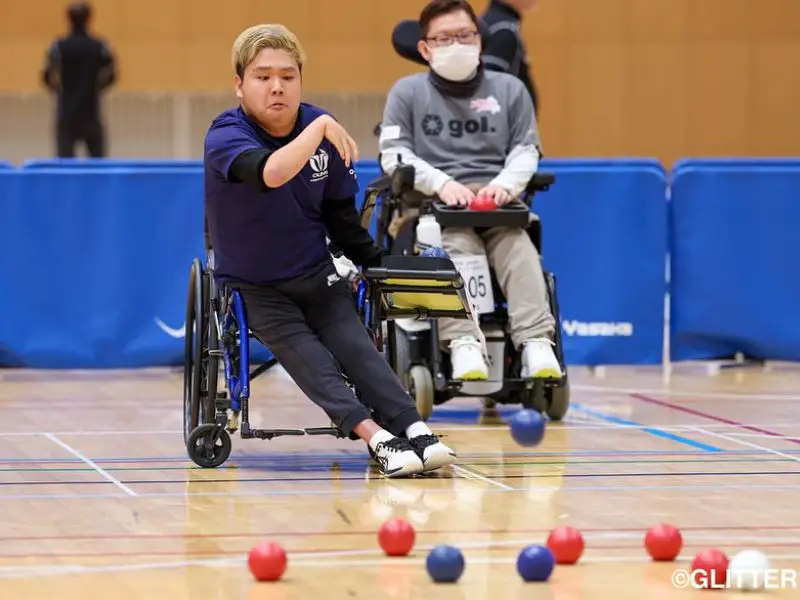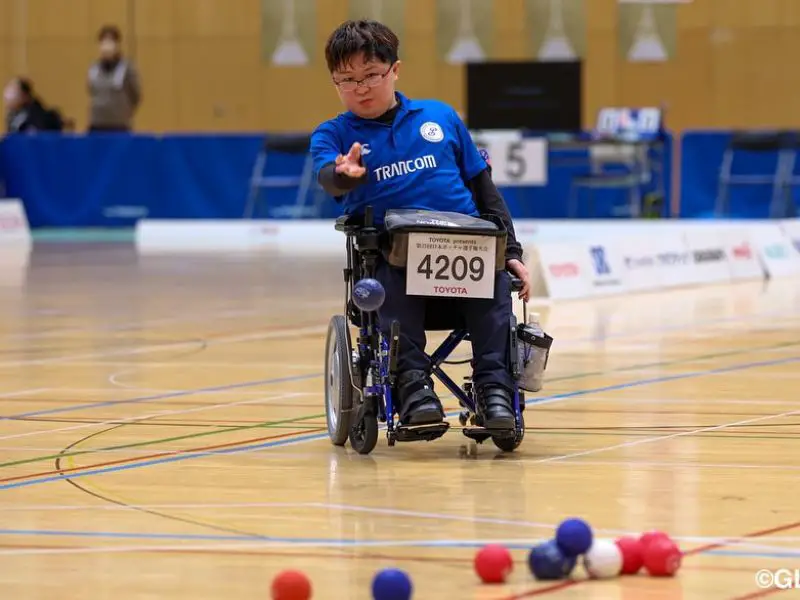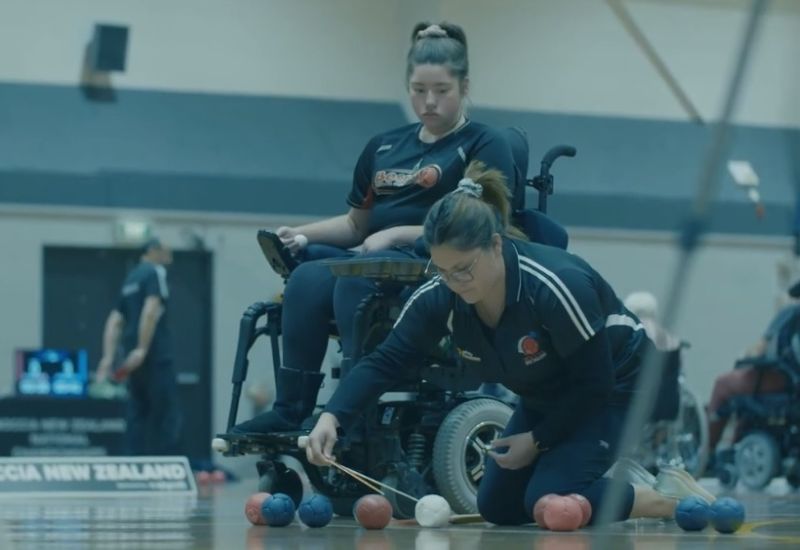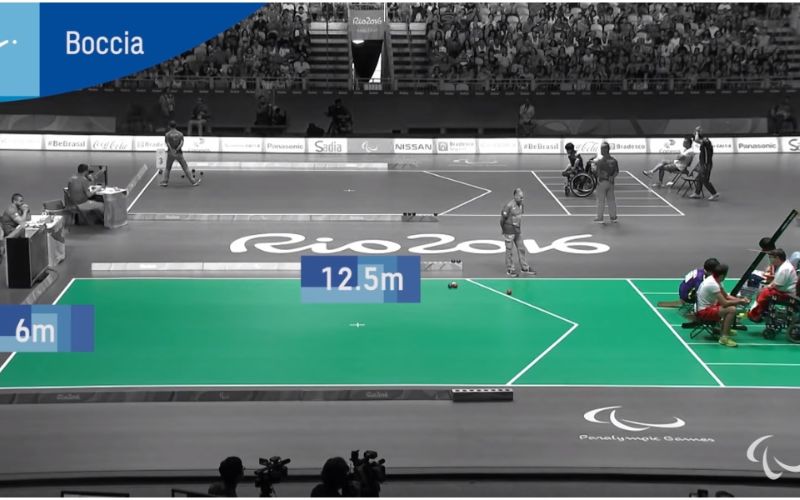Boccia is a Paralympic sport due to its inclusive nature and ability to provide athletes with severe physical disabilities an opportunity to compete at the highest level. Boccia is a precision ball sport that requires strategy, skill, and concentration, making it suitable for athletes with various impairments.
As a sport that prioritizes fair competition and inclusivity, Boccia has gained recognition and acceptance within the Paralympic movement.
It provides athletes with physical disabilities a platform to showcase their abilities, promote integration, and challenge societal stereotypes surrounding disability.
With its Paralympic status, Boccia continues to grow and inspire individuals of all abilities to reach their full potential in sports.
Paralympics And Inclusive Sports
One of the remarkable aspects of the Paralympics is its commitment to inclusivity, allowing athletes with disabilities to showcase their incredible talent and determination.

Through a wide range of sports, the Paralympics promotes the power of human ability, disregarding any physical limitations. Boccia, a unique and gripping Paralympic sport, perfectly exemplifies this commitment to inclusivity.
Paralympic Games
The Paralympic Games are a global multi-sport event held every four years, following the Olympic Games. They provide a platform for athletes with disabilities to compete at the highest level, celebrating their exceptional skills and achievements.
With a growing number of disciplines, the Paralympics continue to emphasize the importance of sports in fostering inclusivity, breaking barriers, and challenging societal perceptions.
Criteria For Inclusion
To be considered for inclusion in the Paralympic Games, sports must adhere to specific criteria. The International Paralympic Committee (IPC) assesses various factors, including worldwide participation, accessibility, fairness, and safety.
Additionally, a sport must not discriminate against any disabilities, ensuring that athletes from different impairment categories can compete on an equal footing.
Boccia, a sport specifically designed for individuals with severe impairments affecting their motor skills, meets these criteria with flying colors.
Its simplicity, strategy, and accessibility to a wide range of disabilities have made it a standout sport within the Paralympics.
Boccia’s unique gameplay involves throwing, rolling, or kicking balls to get them as close as possible to a target ball, known as the jack. Athletes can participate in individual, pair, or team events, showcasing their accuracy, precision, and strategic thinking.
Whether they have cerebral palsy or any other disability affecting their fine motor skills, players excel in Boccia, proving that talent transcends physical limitations.

The inclusivity of Boccia extends beyond the athletes themselves. The sport’s rules and regulations ensure that athletes with different impairments can compete together, promoting fairness and equality.
Each player is evaluated based on their functional ability, and matches are classified accordingly, allowing athletes with varying levels of impairment to compete against each other in a thrilling and highly competitive manner.
Moreover, the adaptive nature of Boccia makes it accessible to individuals of different ages.
Whether young or old, with a disability or without, people can engage in the sport, creating an inclusive environment that fosters understanding, camaraderie, and respect.
The Paralympics and inclusive sports go hand in hand, and Boccia’s inclusion as a Paralympic sport exemplifies the spirit of embracing diversity and celebrating human abilities.
Through its accessible gameplay and commitment to fair competition, Boccia has become a true testament to the Paralympics’ mission of providing athletes with disabilities a platform to shine and inspire the world.
Boccia As A Paralympic Sport
Boccia is a remarkable sport that has gained immense popularity in the Paralympic Games. With its unique rules and strategic gameplay, it offers a thrilling experience for both athletes and spectators.
Classification System
The Boccia classification system is essential in ensuring fair competition among athletes with a wide range of impairments. It classifies players into different categories based on their functional ability.

The classification process involves assessing an athlete’s muscle strength, coordination, and degree of impairment. The system consists of four classes: BC1, BC2, BC3, and BC4. Each class has specific rules and criteria that allow players to compete against others with similar levels of functionality.
Adaptations And Equipment
To accommodate athletes with severe impairments, Boccia provides a range of adaptations and equipment that enable everyone to participate fully.
The game is played indoors on a specially designed court, typically made of rubber or carpet to ensure smooth ball movement.
Athletes use assistive devices such as ramps and pointers to release the balls, depending on their level of impairment.
Boccia balls are made of leather and filled with plastic granules, allowing for ease of grip and control. These adaptations and equipment ensure that individuals with various disabilities can enjoy the sport on an equal playing field.
Competition Format
The competition format of Boccia is captivating and demands both skill and strategy from the athletes. Matches are played individually, in pairs, or teams of three, depending on the event category.
The objective is to throw or roll the balls as close as possible to a target ball called the jack. Each player/team takes turns to throw their balls while strategically trying to block opponents’ attempts.
The scoring is based on the number of balls closest to the jack at the end of each round. Matches can be intense, as athletes skillfully analyze the positioning of balls and make precise shots to gain an advantage.
Boccia’s unique classification system, adaptations and equipment, and exciting competition format have contributed to its success as a Paralympic sport.
The sport not only provides athletes with disabilities an opportunity to showcase their talents but also promotes inclusivity and sportsmanship.
Whether you are a player, a spectator, or a fan, Boccia offers an exhilarating experience that celebrates the remarkable abilities of Paralympic athletes.
Impact And Benefits
Paralympic sports like Boccia have a tremendous impact and offer numerous benefits to athletes, spectators, and society as a whole.
This inclusive sport not only provides physical and mental benefits for athletes but also plays a vital role in increasing awareness and participation among individuals with disabilities.
Additionally, Boccia promotes inclusivity, ensuring that everyone has the opportunity to participate in this exciting and challenging sport.
Physical And Mental Benefits
Engaging in Boccia offers a range of physical and mental benefits for athletes with disabilities. The sport involves strategic thinking, precise targeting, and physical precision, which helps improve hand-eye coordination, fine motor skills, and muscle strength.
Additionally, playing Boccia requires mental focus, concentration, and strategic planning, which can enhance cognitive abilities and problem-solving skills.

Due to its low-impact nature, Boccia is also accessible to individuals with mobility impairments, allowing them to improve their overall fitness and endurance levels.
Overall, Boccia not only provides opportunities for physical activity and skill development but also contributes to the well-being and mental health of athletes.
It offers a platform for self-expression and personal growth, boosting self-confidence, and self-esteem.
Increased Awareness And Participation
The inclusion of Boccia as a Paralympic sport has played a crucial role in increasing awareness about disabilities and promoting a more inclusive society.
As the sport gains more recognition, it brings attention to the abilities and talents of individuals with disabilities, challenging stereotypes and misconceptions.
The Paralympic Games, where Boccia is showcased, serves as a global platform for athletes to showcase their skills and inspire others.
Through media coverage and extensive promotion, Boccia raises awareness about the challenges faced by people with disabilities and highlights their incredible achievements, encouraging greater understanding and empathy.
Promoting Inclusivity
Boccia exemplifies the Paralympic values of inclusivity and participation, ensuring that everyone, regardless of their disability, can engage in competitive and recreational sports.
The sport provides opportunities for individuals with severe impairments to participate on an equal playing field, fostering a sense of belonging and promoting social integration.
By breaking down barriers and creating opportunities for athletes with disabilities, Boccia paves the way for a more inclusive society. It promotes equal opportunities and challenges societal norms, encouraging people to embrace diversity and inclusivity.
In conclusion, Boccia’s impact and benefits extend far beyond the realm of sports. From the physical and mental benefits it offers to athletes, to the increased awareness and participation it generates, and its role in promoting inclusivity, Boccia is truly an integral part of the Paralympic movement.
Final Thoughts
Boccia is an incredible Paralympic sport that provides individuals with severe physical disabilities the opportunity to compete and showcase their skills.
Its inclusion in the Paralympic Games demonstrates the commitment to inclusivity and equality, empowering athletes to overcome challenges and achieve greatness.
Boccia not only promotes physical activity and mental resilience but also fosters a sense of community and camaraderie among athletes.
With its unique rules and strategies, Boccia continues to captivate and inspire audiences around the world.